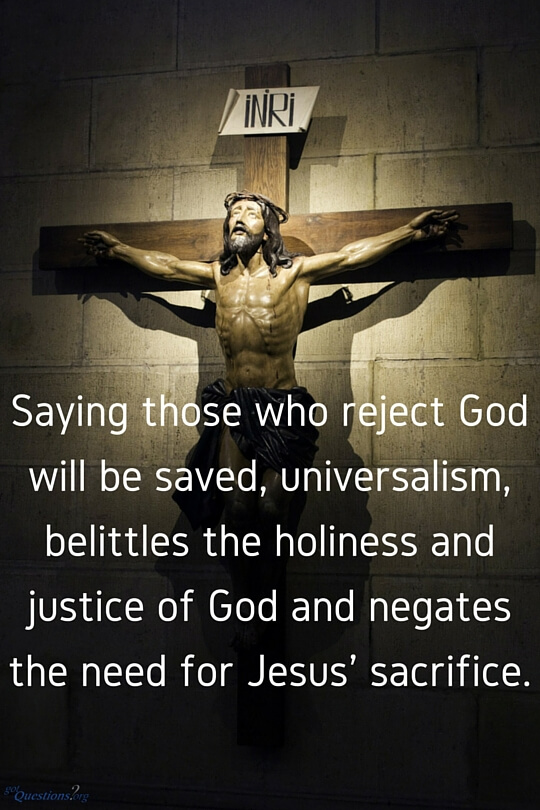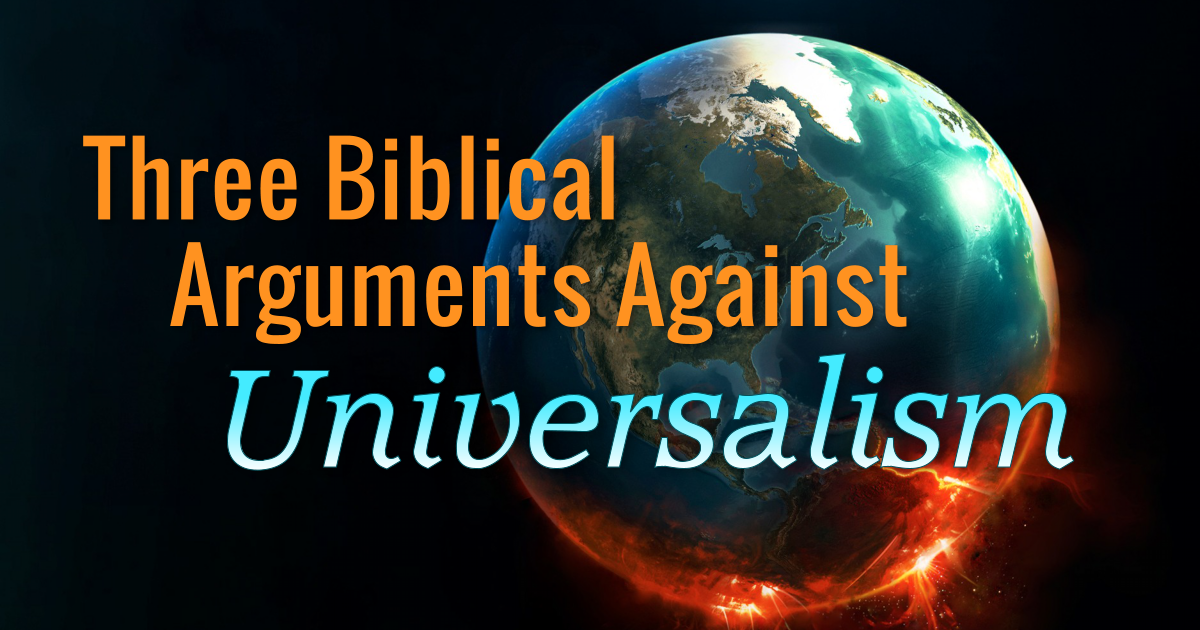- May 1, 2022
- 622
- 262
- 64
- Country
- United States
- Faith
- Christian
- Marital Status
- Married
Over and over on this forum I have seen certain people say that the verses that UR use to make the claim that Jesus is the savior of the world and not a potential savior are out of context . I submit that they are the ones who are taking verses or specifically words or word out of context, but they must do so as to not destroy the foundation of their tradition. Lets look at some verses for example; 1John2:2" and he himself is the atoning sacrifice for our sins , and not only for our sins but also for the whole world. " We in UR say that the context is that Jesus is the atoning sacrifice for all sins not a potential savoir , for Jesus to be a potential savior you must read that into the text, and just incase someone would miss it John again stated the same thing again 1John4:14" And we have seen and testify that the Father has sent the Son to be the Savior of the world." Notice he did not say potential savior of the world that would be taking the verse out of context. The only reason that the ECT tradition can say its out of context is because they believe all verses that show that Jesus is the savior of the world are out of context because it goes against the foundation of their faith ECT. 1 Tim 4:7-11 Paul is telling Timothy to reject myths then in vs 9 it says " This saying is trustworthy and deserves full acceptance . vs 10 In fact this is why we work hard and struggle , because we have set our hope on the living God, who is the Savior of all people, especially of believers' 11 Command and teach these things," what's the context Paul is telling Timothy that the myth is those saying God/Jesus is not the savior of the world, notice he never says potential savior . Mater of fact Timothy is commanded to teach that God is the savior of the world, that's the context. Next look at Romans 5:12-21 this whole section of Romans is comparing what happened because of Adam to what Jesus did, vs12 " So then, just as sin entered the world through one man and death through sin, and so death spread to all people because all sinned." vs 15 " But the gracious gift is not like the transgression , For if the many died through the transgression of the one man, how much more did the grace of God and the gift by the grace of the one man Jesus Christ multiply to the many" The context is that the gift Jesus gave is greater that the Sin that Adam brought into the world. Paul is saying that Jesus's gift is greater, had grater effect than the sin of Adam not less. For ECT to be true the Paul would have had to say that Jesus's death would be less powerful that the sin of Adam . The idea that Jesus's death is more powerful then the sin of Adam undercuts the bedrock of ECT , they must have either sin is more powerful than Jesus or our will is more powerful that Jesus, they cant read these verses in context. Romans 11:11-33 vs15 "For if their rejection is the reconciliation of the world" not a reconciliation of part of the world but the whole. vs 32 "For God has consigned all people to disobedience so that he may show mercy to them all" it doesn't say to show mercy on a few but all, and if anyone is eternally punished I don't see how that is mercy, but we are the ones who are taking this verse out of context? Col 1:19-20 "For God was pleased to have all his fullness dwell in the Son and through him to reconcile all things to himself by making peace through the blood of his cross-through him, whether things on earth or things in heaven" The context is that Jesus is firstborn over all creation ,all things were created by him and for him, he holds all things together in him, and he will reconcile all things to himself. It makes no sense to say he made all, holds all together, but the all in reconciling is not rally all its only some, but they must say that again to uphold the foundation of what they believe. /Is45:22-24 /Phil 2:9-11 the " every knee will bow and every tongue will confess that Jesus is Lord " In the Greek the word for confess is happily and joyfully not a forced action. the plain reading is the context God exalted Jesus above everything created and all will bow to him, not sum but all. There are many more but this is not a book , The reason they must use believe these are out of context is because anything that goes against ECT or Annihilation has to be out of context because even if it sounds like the passage is saying Jesus is the savior of the world if it goes against their foundation its out of context . I think we can play that game also, We know Jesus is the savior of the world and any verse that seems to say otherwise its out of context , our foundation is on Jesus and his accomplished work of the cross. WE also have a trump card which they reject we know that the word they used for eternal doesn't mean eternal its pertaining to the age, so any verse that says eternal torment is out of context because we know the context of the Bible its Gods love letter to the world of how he is redeeming the world to himself and just as it says in 1Cor15:28 " And when all things are subjected to the one who subjected everything to him, so that God may be all in all "




